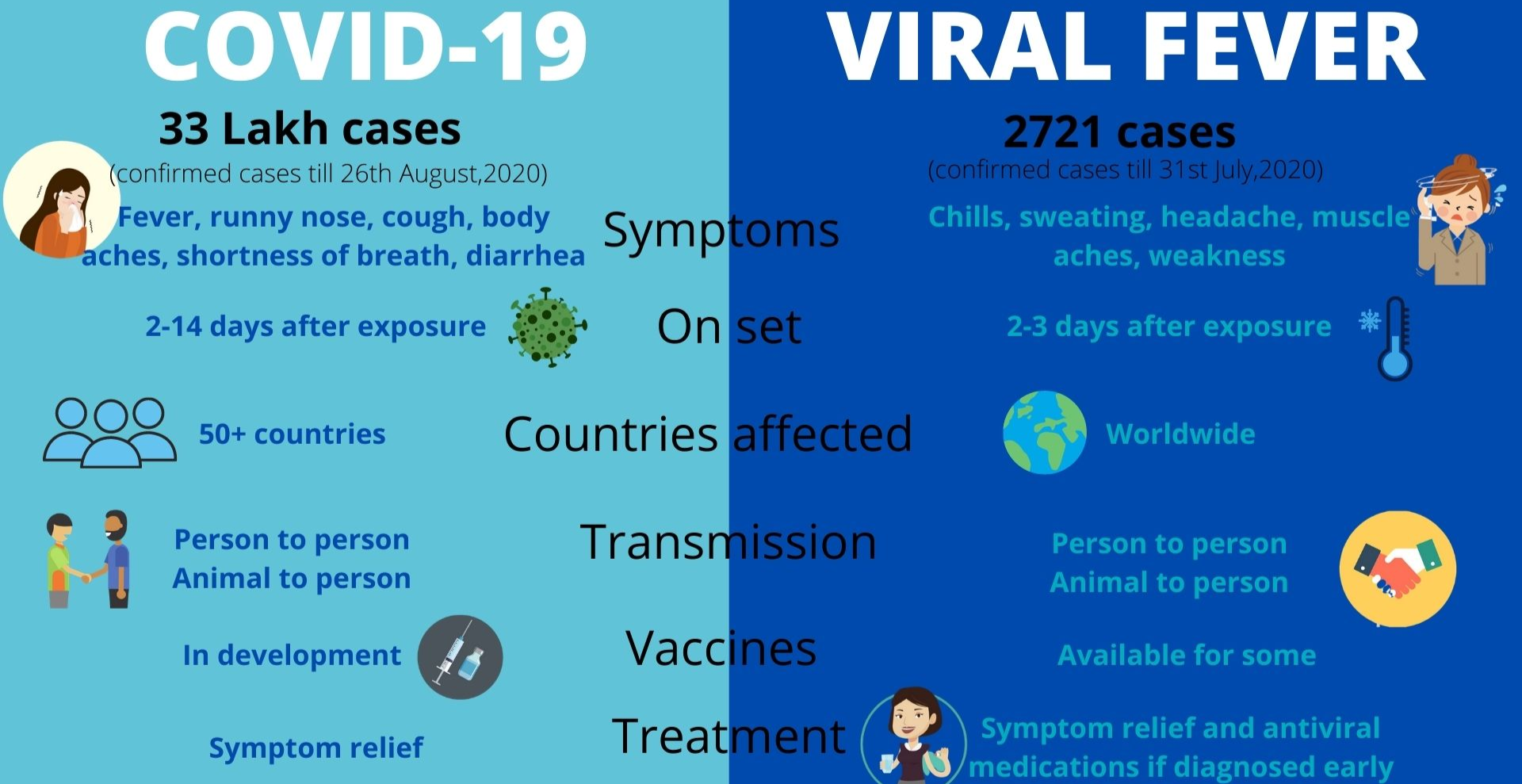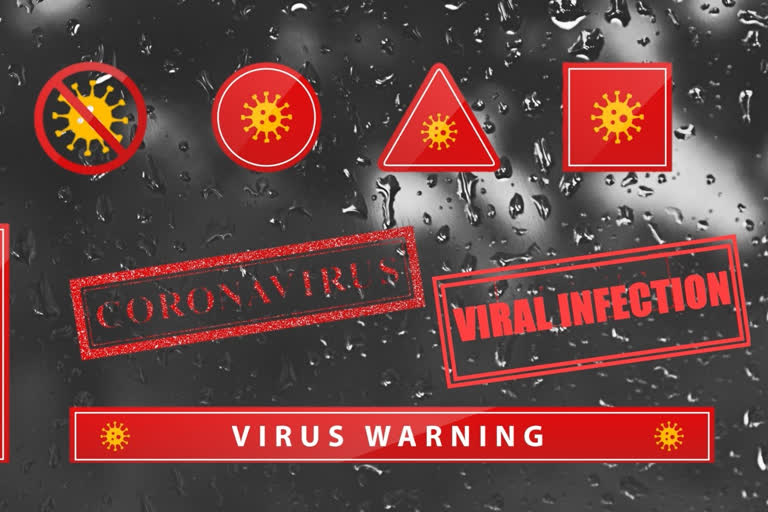COVID-19 is like a raging forest fire that has become extremely difficult to control. Lockdowns were imposed in many countries throughout the world, still, it has been quite difficult to control the number of cases across the globe. Alongside, the weather in India is changing and now with monsoons taking over, other viral infections have started to emerge as well.
According to the National Centre for Disease Control (NCDC), in 2019, the cases of seasonal influenza A (H1N1) across India were 28798 and deaths 1218. ETV Bharat Sukhibhava team spoke to Dr. K. Shankar, MD (General Medicine), Superintendent Fever Hospital and Director at Institute of Preventive Medicine, Hyderabad and he says, “It is now the season of viral infections like dengue, swine flu, and other water-borne diseases, which may last up to around October. However, COVID-19 may remain persistent, till people develop herd immunity. Therefore, it still remains very important to follow all the preventive measures very strictly and be more cautious as other viral infections spread.”

How Has Rain Affected The COVID-19 Virus?
Seasonal viral infections spread a lot during monsoons, but is the effect of the weather same on the novel coronavirus also? Our expert, Dr. Sanjay K. Jain, MBBS, MD (Medicine), working with Apple Hospital, Indore, says “As to what we have seen till date, rains have not affected the spread of COVID-19. This stands as a difference between COVID-19 and other cases of flu. Routine viral infections get affected if there is a cold wave, rainy or humid weather, etc. when the virus gets activated and we see many people suffering from the flu. But, so is not in the case of COVID-19. We have seen a stagnant curve in this case.”
“In the case of higher humidity, the virus tends to stay in the air for a longer time. If a person sneezes or coughs, the droplets can be there in the air for up to 6 hours. Therefore, temperatures play a role in the survival of a virus, which is why certain viral infections spread more when the temperatures are low and there is humidity ” explains Dr. Shankar.
How Do The Viral Infections Spread?
Weather changes are the top cause of a person being down with viral fever. Viral infections can spread from an infected person’s cough or sneeze. Apart from this, if a person gets drenched in rain, they too are likely to contract it. Dr Sanjay explains that when a person gets wet in rain, there is a sudden change in body temperature, which leads to a person catching cold and fever. Also, there are many viruses and bacterias present in our body, called Commensals, which don’t harm the body. But due to the temperature change, they get activated and cause infection.
How To Prevent?
Keeping in mind that along with other routine viral infections, COVID-19 is also spreading at a high rate, people need to be even more cautious than before. Here are some preventive measures as suggested by Dr. Sanjay:
- Wash your hands frequently with soap and water for 20 seconds or clean with an alcohol-based hand-rub (sanitizer).
- Maintain social distancing. Stand at least 6 feet away from a person and avoid going to crowded places.
- Maintain proper cough hygiene. If you see anyone coughing or sneezing in the public, keep away from them.
- Do not step out of your home without wearing a mask.
- The highest level of hygiene has to be maintained.
- Ensure that there is no sudden change in your body temperature. Carry an umbrella or raincoat to prevent getting drenched in rain.
- Avoid eating outside food, since it can cause throat infections and gut problems. Consume a healthy home-cooked meal.
- Have proper sleep hygiene as resting your body is also important
- Exercise regularly. Practise meditation, yoga, home workout.
- Keep a check on your medical conditions as well. Try to keep your diabetes, Blood pressure, etc. under control and keep taking your medicines properly.
Dr. Shankar talks about COVID-19 and says, “Do not step out of your home unless extremely necessary. The medicines that are being given decrease the replication of the virus, but there is no curative treatment available till now. Although the trials are still going on for the same, along with the development of a vaccine. People need to keep their immunity boosted by taking vitamins, a nutritious diet and exercising. These practices will also help in keeping other viral infections at bay”.
“Remember that the pandemic is not over yet. We have to start living with COVID-19, change our habits and lifestyle, and stay at home as much as possible. Sooner or later, we will win over this situation, but till then, people need to be very cautious” says Dr. Sanjay.
Therefore, stay home, especially if you fall into the high-risk category, strictly follow all the preventive measures, and keep safe. Contact medical authorities if you witness any symptoms and prioritize teleconsultation over physically visiting a doctor.



